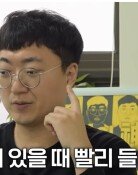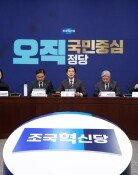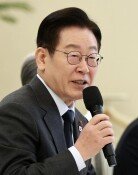Nobel peace prize laureate vows to make Korea model democratic, human rights state
Nobel peace prize laureate vows to make Korea model democratic, human rights state
Posted October. 16, 2000 19:21,

President Kim Dae-Jung, referring to the domestic political situation, stressed that he would endeavor to achieve reconciliatory politics above all, as well as the unity of the people and harmony between the ruling and opposition parties.
In his first press interview since winning the 2000 Nobel Peace Prize at Chong Wa Dae Monday, President Kim emphasized national cooperation in peace and in policies commensurate with a country that received the Nobel Peace Prize, stating that he would exert all of his efforts to attain this objective.
However, he rejected the opposition Grand National Party's demand for his severance of ties with the ruling Millennium Democratic Party, saying that he had never considered the matter. The president dismissed as groundless GNP allegations that the government would launch a judiciary drive against the opposition force and added that such a move would run counter to the spirit of the Nobel prize.
Stating that he would do his best to make Korea an exemplary state regarding human rights and democracy, Kim noted that the main reason for his receiving the prize was his dedicated commitment to inter-Korean reconciliation and exchanges.
With regard to economic issues, Kim acknowledged that the nation is facing economic difficulties, but pledged to make Korea a global economic power without fail and expressed confidence about attaining this goal if the people rendered their full cooperation to the government, as demonstrated by their joining the nationwide drive to collect gold to overcome the recent economic difficulties. After this, he will hand the government over to his successor, the President added.
In particular, President Kim asserted that he would promote a three-pronged policy of implementing reforms in the four major sectors, conducting corporate and financial restructuring in the public and labor sectors and boosting information technology and life science. At the same time, Kim revealed plans to stabilize the livelihood of people in the low income brackets, guarantee the minimum standards of living and promote quality continuing education compatible with the knowledge and information era.
Kim went on to say that he owed his awarding of the Nobel prize to his summit with North Korea's Kim Jong-Il and noted that he feels sorry as well as grateful to the North Korean leader.







